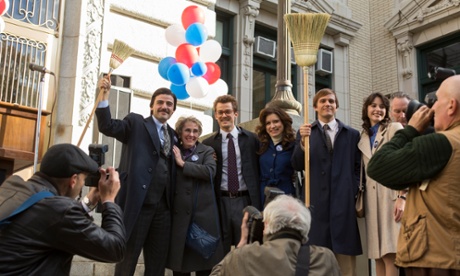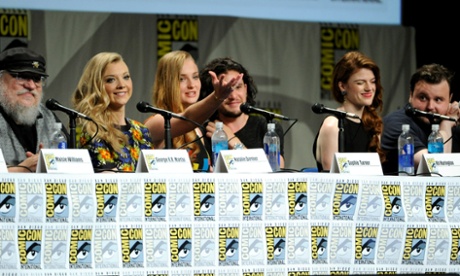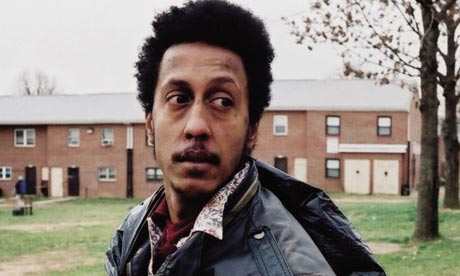Steven Bochco, who has died aged 74, enjoyed a career which spanned almost half a century of American TV drama. He began his working life at Universal Pictures in his mid-20s, working on such staple procedural fare as Ironside and McMillan & Wife, as well as writing the Columbo episode Murder by the Book in 1971 (directed by Steven Spielberg). His last major TV work was Murder in the First, which he wrote and executive produced between 2014 and 2016. This was cancelled – Bochco did not always have the Midas touch. Other flops included Bay City Blues, whose dismal ratings saw him lose his job at Mary Tyler Moore Enterprises, and the spectacularly bizarre Cop Rock, a police drama-cum-musical, a monument to ambition if nothing else, ranked by TV Guide as one of the 50 worst shows of all time.
And yet, when set alongside Bochco’s successes, those failures seem tiny: Bochco was not only responsible for huge successes as a showrunner but for expanding and revolutionising the lexicon of American TV drama for all time. He didn’t do it alone; co-creators such as Michael Kozoll deserve credit too. But Bochco’s achievements are prodigious and enormous.
This he primarily did with Hill Street Blues, which aired between 1981 and 1987. Everything about the show, from its credits to its multiple storylines to its use of handheld cameras, represented a break with precedent. Prior to Hill Street, a cop show such as, say, Starsky and Hutch would see the detectives meet with their captain in an office, with no sense of other activity in the department. Hill Street Blues’ open plan office, by contrast, was a hive of chaos. “Let’s be careful out there”, was Sergeant Esterhaus’s catchphrase following the early morning briefing that would set up each episode – but you had to watch yourself in the office too. You never knew when an unruly arrestee bundled in kicking and screaming might send a filing cabinet crashing down, or plunge through a pane of glass.
By conveying the sheer jostle and bustle of a modern police department, with multiple officers wrestling with typewriters, shouting down phones or at each other, trying to conduct police business under-resourced and time-skint in the face of a tide of criminality, Bochco challenged the viewer to accept a new form of dramatic overload as well as a more realistic depiction of crime fighting and the human beings who wore the badge. Hill Street Blues “starred” Daniel J Travanti as Frank Furillo, a recovering alcoholic ably maintaining a stable keel in a difficult Chicago precinct. But Hill Street Blues was studded with strong and vivid characters, all of them major regardless of rank, from growling undercover detective Mick Belker to idealistic lieutenant Henry Goldblume. From its strongly multicultural cast, to the hip and witty swagger of its dialogue, there was a funkiness, a rhythm about Hill Street Blues that spoke about modern urban America like no other show at the time.
The series also conveyed the pressures of politics on modern policing. It wasn’t just the bad guys you had to fight. Furillo was coping not just with the competing demands of his officers, but political pressure from the mayor’s office and his own, oily chief of police, Fletcher Daniels. This mirrored Bochco’s own creative struggles with the “suits”; there were many at NBC who would have cheerfully canned Hill Street Blues – which suffered initially poor ratings – had it not been defended by MTM head Grant Tinker.
Following Hill Street Blues, Bochco further enhanced his reputation with LA Law, another ensemble piece and Doogie Howser, MD. Murder One anticipated the likes of True Detective and American Crime Story, in focusing on a single case across an entire series. Then there was NYPD Blue, starring Hill Street’s Dennis Franz as detective Andy Sipowicz, which further pushed back the barriers of mainstream TV with its occasional nudity and salty dialogue. However, NYPD Blue’s politics felt a little right-of-centre to some, too much on the side of police, its villains bad to the core rather than victims of social circumstance. The Wire would later offer a much more sociologically rich and complex tapestry of crime and punishment in modern America. Yet, as with ER and The West Wing, The Wire owed a huge debt to Hill Street Blues for dispensing with and rewriting the rules of TV.
Bochco was a showrunner before the term was in common usage. His vision and aptitude for storytelling and narrative arcs, as well as a bloodyminded desire for originality rather than formula, were an inspiration to the likes of David Simon and David Chase, among others. He will be missed but his legacy is permanent.











